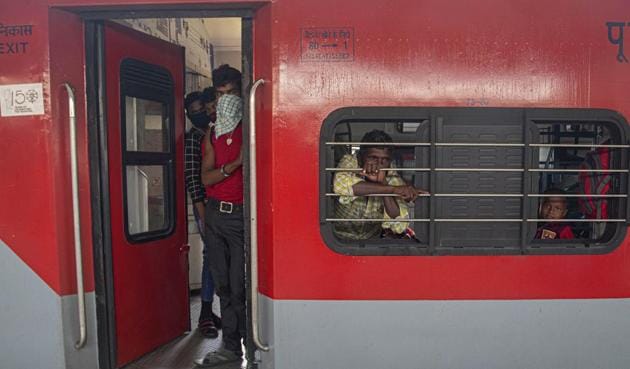Migrant workers: The emergence of invisible India
Prepare a migrant database, give them welfare and voting rights wherever they are, enhance social security
We are living in challenging times brought on by the coronavirus diseases (Covid-19). When India imposed its lockdown, everyone extended full support to the move in the belief that we need to stand as one in the fight against the virus.

Now that India is opening up, it is clear that the strategy to combat the virus did not consider all Indians as one. A country of over 1.3 billion people was locked down, at four hours’ notice, ignoring the needs of the poorest and migrant workers. The government’s response came with an inherent class bias built into it. If you were an Indian abroad, the national carrier was pressed into service to fly you back, even from countries such as China, where the virus had already spread. I support this as an action any responsible country must take for its citizens stranded abroad. Yet, migrant workers, stranded away from their homes and families, found themselves out of jobs with no money or food security.
I am from Padrauna in Kushinagar district in eastern Uttar Pradesh. Thousands of men leave this district every year to find work in the cities often leaving their families behind. Within days of the lockdown, Congress workers reported that many migrants from my district were stranded in different states. I set up a helpline with my team. As soon as we made the numbers public, we were deluged with calls. They all had one demand in common: Basic rations to get by. All their money had been exhausted with the overnight shutdown of factories.
One of the saddest calls was from a group of young boys stuck in central UP. Left with no wages, they had pooled together and sold three mobile phones to buy food. Selling a mobile phone, the only connection with their families, has become an act of ultimate desperation to survive in these times.
The Congress Working Committee and president as well as Rahul Gandhi warned the government that this was becoming a humanitarian crisis of unimaginable proportions. This was dismissed as carping by the Opposition.
The irony is, we have treated migrant workers as outsiders, though they have been crucial to nation-building. Their needs were invisible to those who made grand announcements, until they came out to walk on the very streets and highways they had built, on the way back to their homes.
During election campaigns, I have often gone to areas where there is a dominance of people from UP. They have all told me the same thing — they are considered outsiders who are good enough to build metros and skyscrapers, but not considered deserving even of habitable accommodations. They are outside the safety net of most state government schemes because they don’t have domicile documents.
There are three constructive action points we need to consider urgently. One, we need a database of people working and living outside their states. For too long, the fact that they are working in the informal sector as contract labour has made them almost non-existent. This database would make it easier to accurately assess how many need to be given food or shelter or transported during a crisis such as this.
Two, the government has now taken up the proposal put forward by the former United Progressive Alliance (UPA) government of one-nation, one-ration card. This must be taken a step further. Workers with an identity document from another state should be allowed to access all government schemes and facilities of the central government or of the state where they are currently living. Also, workers from other states must be allowed to vote where they are living. This will give them political value and access to the local elected representative. Both Aadhaar and the Mahatma Gandhi National Rural Employment Guarantee Scheme are UPA government schemes. They must now be strengthened.
Three, instituting labour reforms does not mean making it easier to exploit workers. We must now formulate a universal social security scheme for workers using an authentic database. In reply to a recent public interest litigation in Gujarat, the state said only 7,512 of an estimated 2.25 million migrant workers were registered. The government has no accurate estimates of the numbers of migrant workers or their locations which explains the inadequate response to their plight today.
The only silver lining in a dark cloud is that India’s urban residents seem to have finally woken up to the circumstances in which many of their fellow citizens are living. They have begun to realise how much these voiceless, faceless people contribute to their lives.
The most humbling conversation I have had during these last two months was with the father of a 19-year-old boy, Arjun Chauhan, who came from my district. He was killed in a road accident in Auraiya, UP, on his way home in the back of a crowded truck. His father told me his son had left his village for the first time in his young life, just a few months ago, to earn a decent living for himself and his family. Will his death be seen as a fall-out of the pandemic, the apathy of the State, or just another statistic to be forgotten? Most importantly, will it be a wake up call to India’s policy makers?






